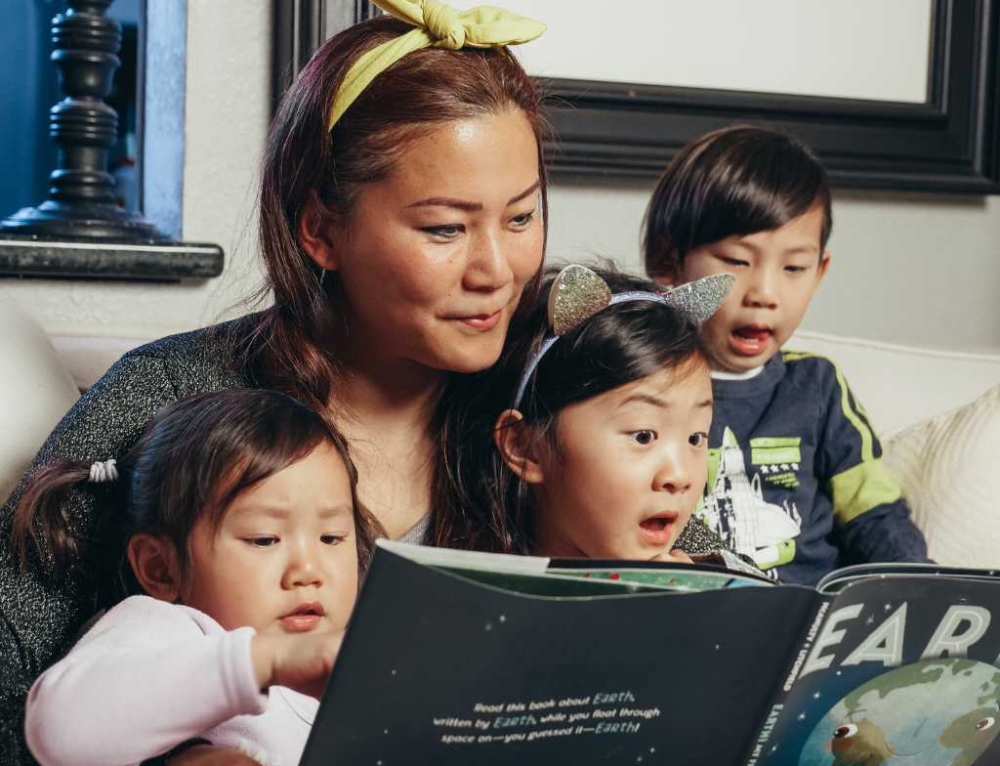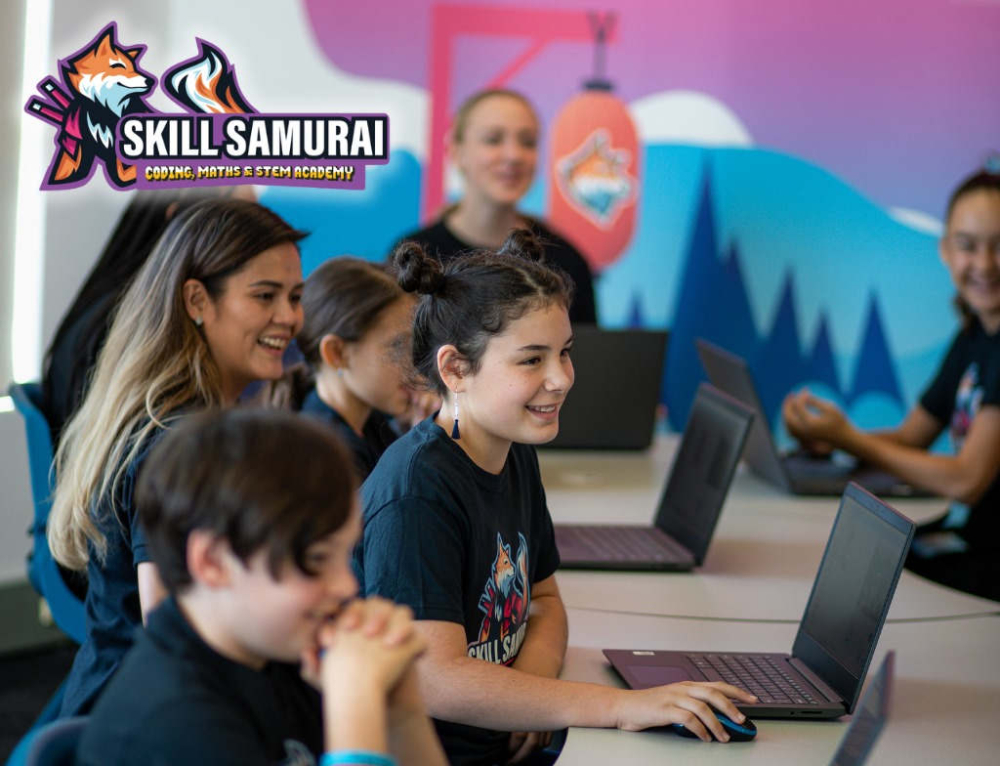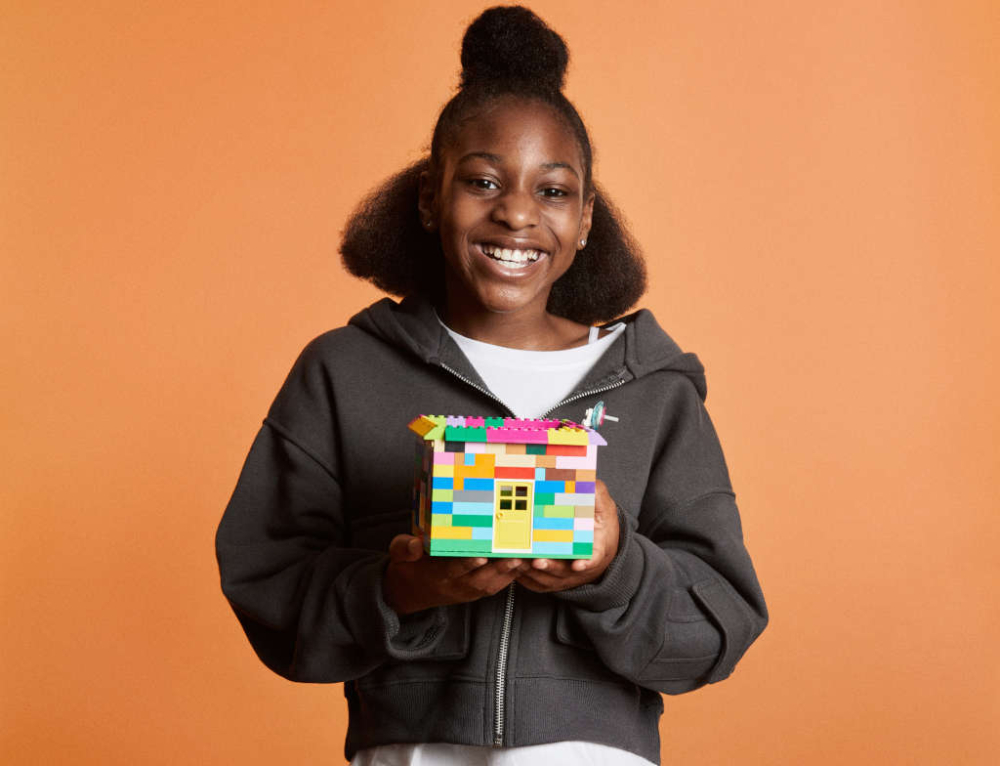This article originally appeared on Dr. Psych Mom and has been republished here with the author’s permission. By Dr Samantha R0dman.
Are you naturally carefree and happy? If so, it’s likely a mix of your genetics (identical twins rared apart are usually the same level of happy) and your personal choices about how to live your life.
The field of positive psychology centres on the idea that people can make themselves happy just by changing how they think and act. Happiness is conceptualised as more of a habit than a God-given blessing. And while some of your happiness is biologically determined, there are many things you can do to be happier.
These 11 questions focus your children on how to make themselves happy. Eventually, your children will internalise these questions and ask them in their own heads. Then you’ll have given them the gift of happiness, which will make you so (you guessed it) happy.
1. What was your favourite part of today?
This is a good question to ask at bedtime, to help your child feel content and happy before sleep. It also instils a habit of focusing on the best thing that happened in any given day rather than the worst. If you make this part of your bedtime routine, it will become second nature.
2. What are you grateful for?
This is a good question for the dinner table. Every family member can take a turn saying what he or she is grateful for that day. There is a strong correlation between happiness and gratitude, so this one is very powerful.
3. What are you going to do about that?
When a child comes to you with a problem, ask this question in a warm and curious tone. Don’t just jump in and solve their problem; how does that help them in the long run? At least give them a chance to work it out on their own, and give them the gift of your confidence in them, which is evident by this question that implies that they can think of solutions to their own issues. If your child says “I don’t know,” you can say, “I am not sure either, let’s try to figure it out together.” Happy people are people who think of problems as surmountable, and think of themselves as effective problem solvers.
4. How did that make you feel?
At the risk of sounding shrink-y, an essential part of happiness is being able to notice and express your own emotions. If you can verbalise what you’re feeling, you can make sense of it, you can process it, and you can obtain support from others. This is a great question to ask when your child comes to you with something “bad” that happened, instead of either dismissing it (“that wasn’t that bad”) or fixing it (“let Mummy get you some ice!”). It trains your child to be aware of his feelings, and to use that information effectively.
5. What do you think he/she feels?
In any situation, you can cultivate empathy by asking your child to wonder about what someone else feels. Empathy will make your child a happier person; he or she will have stronger interpersonal relationships, feel better about himself for thinking of (and then, often, helping) others, and derive more meaning from life.
6. How can you look on the bright side?
In any situation, you can teach your child that there are positives. With preteens or teenagers, this question may be way too corny, but little kids will like it. You can also teach them the expression “making lemonade out of a lemon” and ask them how you can make lemonade out of a bad situation, like, “You fell and hurt yourself, so that’s a lemon, but you got a Tinkerbell bandaid, and that’s lemonade! Now you tell Mummy one.”
7. What part of that can we learn more about?
In any TV show, book, trip outside the house, basically any situation at all, there is something to learn more about. And look at you, Super Parent, you already have your smartphone at the ready! So this time use it for teaching your child that life is full of learning opportunities. Happy people are people who are curious and always learning. So when you watch TV and someone says “Bonjour,” you can look up pictures of France or a YouTube song sung in French. When your child realises that this question means that you’re going to whip out your phone and show them something new and special, they will ask it to you all the time. And that’s how you end up looking at pictures of real estate in Nebraska with your four-year-old. Don’t ask.
8. What do you want to do on the weekend?
Research shows that anticipation of positive experiences brings more happiness than the experiences themselves. Once your child is old enough to realise that tomorrow is not today, start instilling a habit of positive anticipation of small pleasures. A child who is excited all week to get frozen yogurt on the weekend is a happy child, just as an adult who plans a vacation six months in advance is happier during those six months.
9. What can we do to help/to make someone happy?
Bringing your child along to visit a sick relative, or someone recovering from surgery, or to volunteer at a soup kitchen is a wonderful gift that you can give to your child. Your child will feel even more proud of his behaviour if he is the one to think up the nice thing that can be done (e.g., baking cookies to deliver, drawing a card). Research shows that giving releases oxytocin and endorphins, so it’s like a high that your child can become addicted to. Also, involve your child in your charitable activities, as giving charity is a form of altruism that is also linked directly to happiness (and just to being a good person, which you also want for your child).
Incorporate a spirit of generosity into your child’s daily life. Whenever you’re out, buy something little for someone else. When you colour, make a picture for someone else. Giving things to others makes people happier than buying things for themselves, and enriches interpersonal relationships.
10. What do you want to do outside today?
Getting outside and engaging in physical activities alongside your child is a wonderful way to get him in the habit of not just sitting around. Exercise releases endorphins and is as often as effective at treating depression as medication. And the most powerful way that you can teach your child about exercise is to do it yourself. Children whose mothers exercise are more likely to exercise themselves. And sunlight can also help boost mood and regulate circadian rhythms, which means better sleep for your kids, which makes everyone happier.
11. When do you feel happiest?
If you direct your children’s attention to the experiences that they most enjoy, they will start to realise that they can choose to proactively increase their time spent in activities that make them feel best about themselves. According to researcher Mihaly Csikszentmihalyi, “flow” is the state where people find an activity so enjoyable and rewarding that they become completely immersed in it, losing all sense of time and feeling completely in the moment.
If your child is lucky enough to have found an activity that makes him feel a sense of “flow,” it is helpful for you to point this out and allow your child enough time to attain this state. Note: for many kids this is video gaming, which is actually fine, since a great deal of research points to many psychological benefits of gaming. The best-case scenario is for your child to find a career that puts him into “flow,” since then, as the saying goes, he will never “work” a day in his life.
Till we meet again, I remain, The Blogapist Who Actually Does A Lot of These, So If I Can Do Them With Three Kids And Limited Patience, So Can You!
Dr. Samantha Rodma is a clinical psychologist and dating coach from Washington D.C. She has a husband, three young children and one fish. She blogs at Dr. Psych Mom.
Read more on Kidspot:







Some really great questions and I think they are questions that are good for adults as well. I enjoy hearing what has been someone’s favourite part of the day.
Number 7 I do with my kids all the time. I’m always looking things up for them, sharing videos and things. I swear they know more than I did at their ages simply because we all work around with mini computers everywhere now! On asking about their days I do try to ask things like – what was the best part of today? and when they have a conflict with someone at school, I do often try to unpack what may have been happening for the other person, especially if it’s a friend and the conflict has really muddled things for my kid. Another thing I have started is talking about contentment over happiness.
These are awesome!! I have saved this article so we can ask these questions to our son 🙂 I always ask him for details about his day and he is quite open about things he is going through at home or at his other house. We also do BWF- Best, worst and funniest events of each of our day. We discuss it over dinner 🙂
These are all important questions that we should all think about I think this has opened up my mind more reading about these. We all like happy children and trying to make them happy sometimes can be hard as they can not get everything they want. Asking questions to open up there minds and let them answer with there own words is important. Getting children outdoors like this article says it is great seeing the sun everything put together helps a child to sleep better at night when they are happy.
Great questions, we try and ask these types of questions of our 5 year old daughter. I think waking up and going to sleep in a happy and positive frame of mind is great, not always possible but makes a difference. Hubby and I are pretty positive people and try to instill this in our daughter, she is a pretty cool kid and has a lot of friends, including adults that we all know who are not family members. I think friendships with adults is also very important for kids too.
I think the first question and the last question are the most important questions. Because if your child is happy before sleeping they’re going to have a good sleep and the last question because it’s a very positive question to make them have a positive attitude and think about happiness and good thoughts. ♥ This is a great read.